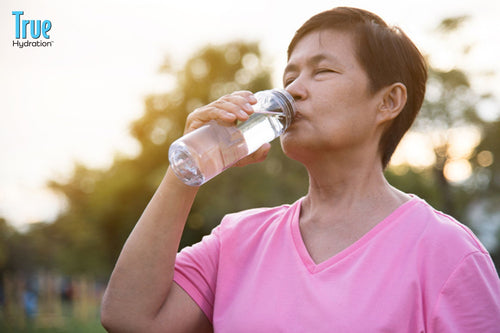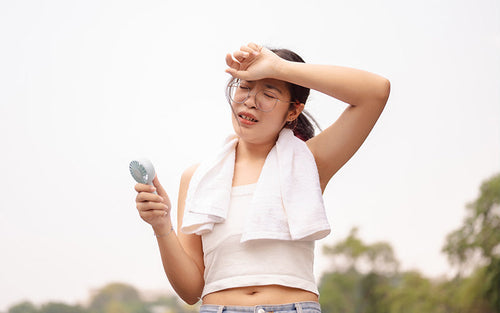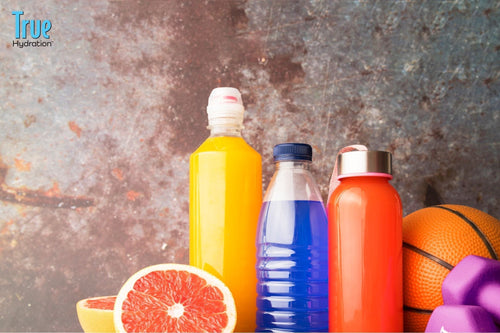Part 1: Introduction
Hydration is often thought of as simply drinking enough water, especially in a place like Singapore where the tropical climate makes staying hydrated feel like a daily necessity. However, effective hydration is about much more than fluid intake. It also depends on how well the body retains and uses that fluid. This is where electrolytes make a crucial difference.
While many sports and wellness drinks claim to support hydration, their high sugar content can work against your body’s natural balance. Excess sugar slows fluid absorption, causes energy crashes, and adds unnecessary calories. That is why sugar-free electrolyte drinks are becoming a preferred choice for everyday hydration; they deliver the minerals your body needs without compromising on health or performance.
Electrolytes are minerals that carry an electric charge. They help regulate nerve signals, muscle contractions, and fluid balance. Without them, even the purest water cannot fully support the body’s needs. When sweat, illness, or daily activity depletes electrolytes, the body requires more than just plain water to recover.
This article explains the role of electrolytes, why electrolyte drinks without sugar are becoming essential for modern lifestyles, and how they provide a smarter alternative to traditional options. By the end, you will understand why replacing lost minerals is just as important as drinking fluids, and why clean formulations matter for everyday wellness.
Key Takeaways
- Electrolytes are minerals that carry an electric charge and are essential for hydration, nerve signals, and muscle function.
- Common electrolytes include sodium, potassium, calcium, magnesium, chloride, and phosphate.
- Dehydration, sweating, and illness can lead to an electrolyte imbalance.
- Electrolyte-rich drinks or foods help restore balance, especially in hot climates like Singapore.
- Not all hydration is equal; plain water is not always enough if you are losing minerals.
Part 2: What Are Electrolytes and Why Do They Matter?

2.1 How Do Electrolytes Work?
Electrolytes are charged particles, or ions, found in blood, sweat, and other bodily fluids. They regulate the delicate balance of fluid between cells and the bloodstream, ensuring that hydration is effective rather than simply the intake of water. Sodium and potassium play central roles in muscle contractions and nerve signals, while calcium and magnesium help maintain bone health and energy production. Chloride and phosphate also contribute to stable blood pressure and pH levels, which keep the body functioning smoothly.
When the body loses fluids through sweat, illness, or daily activity in a hot climate, electrolytes are lost as well. This is why plain water alone may not always restore balance. An imbalance can result in muscle cramps, fatigue, dizziness, or even irregular heartbeat. Restoring these minerals quickly is key to maintaining focus and performance.
Food sources such as bananas, leafy greens, and yoghurt can help to replenish electrolytes, but beverages often offer a faster solution. In particular, electrolyte drinks without sugar provide the essential minerals minus unnecessary calories. Unlike traditional sports drinks that rely on high sugar content, such sugar-free electrolyte drinks focus on replenishment and absorption, making them suitable for both active recovery and daily hydration.
2.2 Why Hydration Alone Is Not Enough — The Benefits of Electrolyte Drinks Without Sugar
Drinking water is essential, but hydration is not just about replacing fluids. Excessive water intake can dilute sodium and other electrolytes in the blood, a condition that reduces the body’s ability to function properly. Sweating adds to the challenge by depleting both water and key minerals such as sodium, potassium, and magnesium. This explains why, even after drinking large amounts of water, people may still feel weak, lightheaded, or experience muscle cramps.
Electrolyte imbalance can cause symptoms including fatigue, dizziness, confusion, and poor muscle performance. It can affect anyone exposed to heat, recovering from illness, or engaging in physical activity—not just those involved in sports. While water quenches thirst, it does not address the loss of minerals that keep cells operating efficiently.
This is why many are turning to sugar-free hydration drinks. These restore balance by replenishing minerals while avoiding the high sugar content often found in traditional sports drinks. By choosing electrolyte drinks without sugar, individuals can maintain hydration without experiencing sugar spikes or unnecessary calories. This makes them practical for both daily use and active lifestyles, providing a cleaner, more effective way to stay energised and well hydrated.
Part 3: Getting Your Electrolyte Levels Right

3.1 Causes and Symptoms of Electrolyte Imbalance
Electrolyte imbalance occurs when the body has either too little or too much of essential minerals such as sodium, potassium, calcium, or magnesium. These imbalances can be triggered by several factors:
- Excessive sweating during exercise or outdoor activity in hot climates.
- Illness, including diarrhoea and vomiting, which accelerates fluid and mineral loss.
- Overhydration, where consuming large amounts of plain water dilutes electrolytes in the bloodstream.
- Poor diet, lacking foods rich in minerals.
The symptoms of imbalance vary depending on which electrolytes are affected. Muscle weakness, twitching, or cramps often signal low sodium or potassium levels. Fatigue and brain fog can occur when overall electrolyte availability is insufficient, while irregular heartbeat may point to problems with potassium or calcium. These warning signs should not be ignored, as they can escalate if left untreated.
At-risk groups include older adults, women during menstruation or menopause, and those taking medications such as diuretics. For these individuals, electrolyte drinks without sugar offer a safe and effective way to restore balance. In Singapore’s warm and humid climate, choosing a clean electrolyte drink helps replenish lost minerals, support recovery, and maintain steady performance in daily life.
3.2 Best Sources of Electrolytes: Drinks, Supplements, and Food
Electrolytes can be replenished through a mix of beverages, foods, and supplements, each offering unique advantages.
- Drinks: Options such as coconut water, mineral-rich spring water, or isotonic blends provide hydration alongside essential minerals. However, many commercial sports drinks contain high amounts of added sugar. Choosing low-sugar sports drinks or electrolyte drinks without sugar is often a better alternative, as they deliver the same hydration benefits without unnecessary calories or artificial sweeteners. True Hydration™, for instance, is designed as a clean, everyday wellness option.
- Food: A balanced diet contributes significantly to electrolyte intake. Potassium is abundant in bananas and avocados, calcium is found in yoghurt and leafy greens, and magnesium is supplied by nuts and seeds. Incorporating them into daily meals supports ongoing mineral balance.
- Supplements: In some cases, electrolyte powders or capsules are useful for individuals with specific needs, such as athletes or those recovering from illness. Yet, when convenience and hydration are priorities, a ready-to-drink formula is often more practical.
Overall, combining whole foods with electrolyte drinks without sugar ensures efficient recovery from mineral loss while supporting a clean and sustainable hydration routine. This approach balances immediate rehydration with long-term dietary health.
3.3 When Do You Need More Electrolytes Than Usual?
There are times when the body’s demand for electrolytes increases significantly. Recognising these situations allows you to respond quickly and prevent dehydration or fatigue.
- During intense workouts or long outdoor activities: Prolonged sweating leads to a substantial loss of sodium and potassium. Drinking plain water may not be enough. Electrolyte drinks without sugar replace both fluids and minerals, helping muscles recover and preventing cramps.
- After recovering from diarrhoea or vomiting: Illness accelerates fluid and mineral loss, leaving the body vulnerable. A carefully formulated electrolyte drink helps restore balance and speed up recovery.
- When experiencing heat exhaustion or fever: In hot climates or during illness, fluid needs increase dramatically. Choosing electrolyte drinks without sugar ensures minerals are replenished without adding excess sugar that can upset the stomach.
- While fasting or following a ketogenic diet: These dietary patterns can affect fluid retention and mineral balance, making electrolytes especially important for energy and focus.
- For women during menstruation or menopause: Hormonal changes can influence hydration and electrolyte distribution. Supporting the body with balanced fluids helps reduce fatigue and maintain stability.
In each of these situations, electrolyte drinks without sugar provide a clean and effective way to restore what the body needs.
3.4 Frequently Asked Questions (FAQs)
Q1. Can I get all the electrolytes I need from food alone?
A balanced diet provides minerals from sources like avocados, nuts, seeds, and citrus fruits. However, during hot weather or after exercise, food alone may not be enough. Electrolyte drinks without sugar offer a quicker way to restore balance, making them an effective complement to whole foods.
Q2. What is the difference between an electrolyte drink and an energy drink?
An electrolyte drink supports hydration by restoring sodium, potassium, and magnesium, which the body loses through sweat or illness. Energy drinks rely on caffeine and sugar for stimulation. Choosing electrolyte drinks without sugar ensures proper hydration without the dehydrating effects of stimulants or unnecessary calories.
Q3. Is it safe for children to consume electrolyte drinks?
Yes, but it is important to select safe formulations. Children can benefit from rehydration after fever or active play, and electrolyte drinks without sugar provide a cleaner choice free from excess additives. Consulting a paediatrician is advisable if electrolyte drinks are to be used regularly.
Q4. Can too many electrolytes be harmful?
Yes, overconsumption of sodium or potassium can disrupt the body’s balance, affecting blood pressure or heart rhythm. The key is moderation. Choosing electrolyte drinks without sugar designed for daily use ensures you receive a balanced formula that supports hydration without excessive mineral intake.
Q5. What makes True Hydration™ different from other options?
True Hydration™ uses 99.999% pure water enhanced with essential electrolytes, offering hydration without unnecessary sugars, colourings, or artificial additives. Unlike many commercial products, it is a sugar-free electrolyte drink created for daily wellness, helping the body absorb fluids efficiently and supporting wellbeing in Singapore’s hot and humid climate.
Electrolytes are far more than a sports trend. They help to provide a foundation of proper hydration, influencing everything from mental clarity to physical performance. In Singapore’s climate, where fluid and mineral loss is constant, relying on water alone may not be enough.
In such an environment, electrolyte drinks without sugar can help the body replenish fluids and essential minerals without the excess calories found in traditional sports beverages. Unlike sugary options, sugar-free electrolyte drinks can support everyday balance, making them suitable for professionals, families, and active individuals alike.
Whether you are looking for a zero-sugar electrolyte drink after exercise, during recovery, or simply as part of your daily routine, the smartest choice is one that restores what the body truly needs. True Hydration™ offers clean, balanced hydrating drinks designed for everyday use.
Shop now and discover a healthier and more effective way to hydrate.



